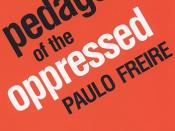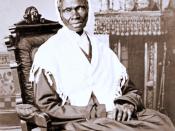Introduction
The above paper is based on two alternative readings interpreted through the traditional early childhood pedagogy and ideas from feminist post-structuralism. This paper seeks to explore some limitations of the traditional early childhood pedagogy in addressing gender issues by comparing it with the feminist post-structuralist approach. A brief introduction to each theoretical perspective will first be given.
Developmental psychology is central to traditional early childhood pedagogy. Traditional early childhood pedagogy is conceptualized within a Piagetian-based theory. This theory defines development as a natural progression through various stages in the same sequence, irrespective of the social and cultural environment (Kolberg & Mayer, 1972, p. 454).
Feminist post-structuralism draws on principles of post-structuralism and feminism (Weedon, 1997). Generally, post-structuralism looks at individual's lives as conscious thinking subjects, and how they give meaning to material social relations (Weedon, 1997, p. 26). Feminist post-structuralism is distinguished by its focus on individuals' understandings of themselves and of each other's understanding of the individual as male or female, and how such categories impose limits on understandings, knowledge, skills and performance (MacNaughton, 1995, p.
37).
In the discussion that follows, the scope will be limited to deconstructing the underlying assumptions of naturalness and children as passive recipients of social experiences in traditional early childhood pedagogy.
Deconstructing Naturalness
An important aspect of traditional early childhood pedagogy is the 'natural' development of children. Any intervention would be harmful to the natural development of the child (MacNaughton, 2000). As Hall (1901, cited in Kolberg & Mayer, 1972) stated,
The guardian of the young should strive first to keep out of nature's way and to prevent harm and should merit the proud title of the defenders of the happiness and rights of children (p. 24).
However, the definition of what is 'natural' is problematic and debatable (Alloway, 1995). Is...


